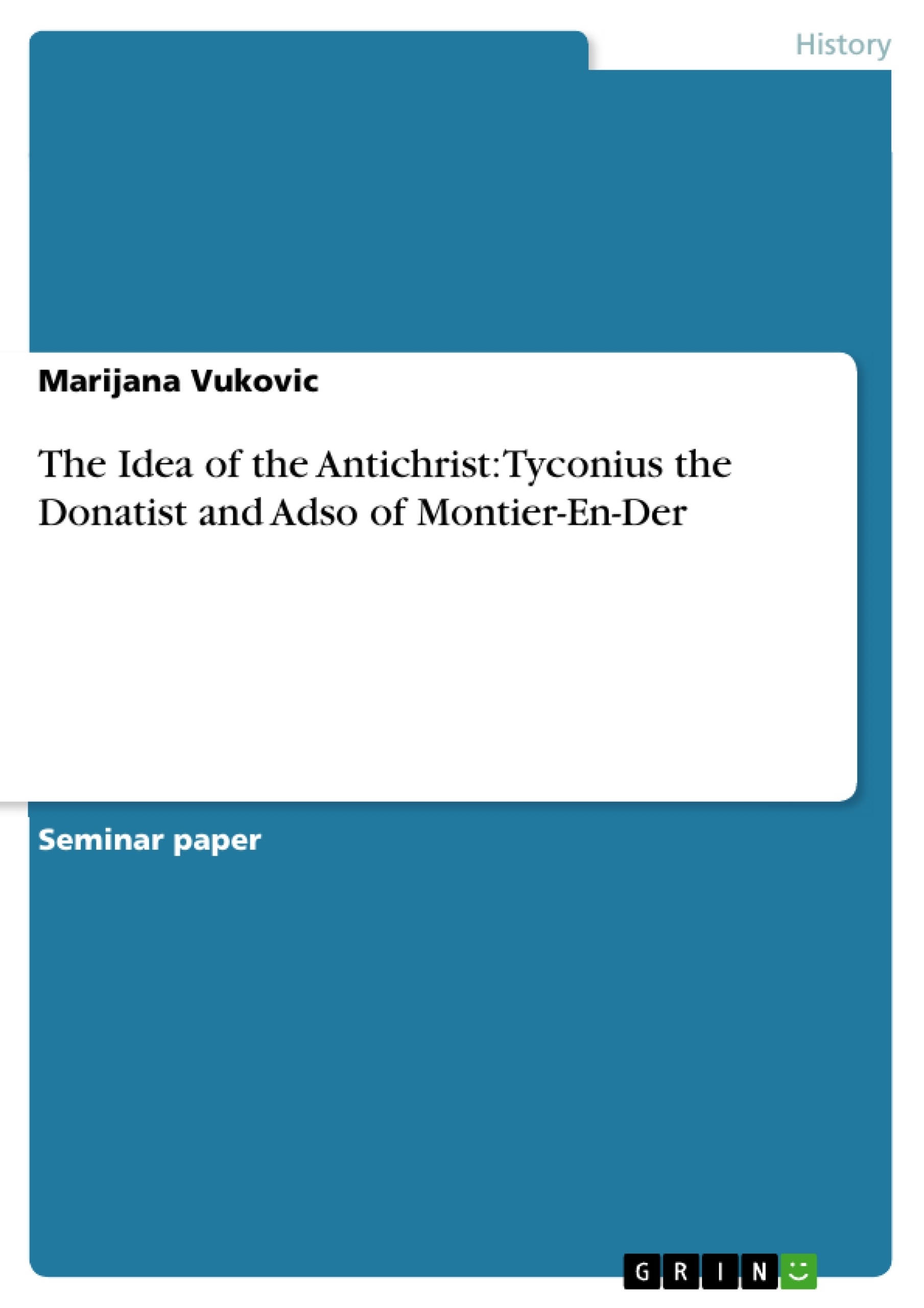Eschatology, or study of the End of World, is a part of theology concerned with the final destiny of humankind. It is in human nature to ponder such matters, and therefore, it is no wonder that similar questions appeared in Christianity as early as the writing of the Scripture. Christianity began with an announcement that time and history were about to end.1 The interpretations of the Bible depended on their writers’ attitude.
Consequently, certain passages from the Bible were interpreted literally or allegorically, but common ground was established in understanding the Book of Daniel and the Revelation of John, which were seen as good examples of eschatological writings. The second coming of Christ was the most important eschatological event. Some authors saw this second arrival as a literal, pre-millennial event, in which Christ would reign on Earth a thousand years before the second coming. Others saw it allegorically, as a postmillennial event.
Inhaltsverzeichnis (Table of Contents)
- TYCONIUS' ANTICHRIST
- The Book of Rules
- The Commentary on the Apocalypse
- The Donatist Schism
Zielsetzung und Themenschwerpunkte (Objectives and Key Themes)
This paper explores the idea of the Antichrist in the writings of two theologians: Tyconius the Donatist and Adso of Montier-En-Der. The study aims to compare their understanding of this concept, analyze its development over time, and identify the factors that shaped these interpretations.
- The concept of the Antichrist in early Christian eschatology
- The role of the Antichrist as a symbol of evil and opposition to Christ
- The influence of political and religious contexts on interpretations of the Antichrist
- The impact of the Donatist controversy on Tyconius' understanding of the Antichrist
- The development of the concept of the Antichrist from the 4th to the 10th century
Zusammenfassung der Kapitel (Chapter Summaries)
- The paper begins by introducing the concept of the Antichrist in early Christianity, highlighting its significance in eschatological thought. It examines the emergence of the idea and its connection to scriptural texts, particularly the Book of Daniel and the Revelation of John.
- The paper focuses on Tyconius the Donatist, a 4th-century theologian, and his interpretation of the Antichrist. It explores his surviving works, including the Book of Rules and the Commentary on the Apocalypse, and analyzes his distinctive views on the Antichrist and his role in the world.
- The paper examines Tyconius' interpretation of the Donatist schism in relation to the Antichrist, highlighting his view of the schism as a necessary precursor to the revelation of the “man of sin.”
- The paper then delves into Tyconius' understanding of the Church as a "mixed body" of righteous and unrighteous, and his perspective on the nature of evil in the world.
- Finally, the paper discusses the broader historical context of Tyconius' time, particularly the Donatist controversy and its impact on the understanding of the Antichrist.
Schlüsselwörter (Keywords)
This study focuses on the concept of the Antichrist, exploring its definition and evolution in the writings of Tyconius the Donatist and Adso of Montier-En-Der. Key themes include eschatology, the Book of Revelation, Donatist controversy, the nature of evil, and the history of Christian thought.
- Quote paper
- Marijana Vukovic (Author), 2008, The Idea of the Antichrist: Tyconius the Donatist and Adso of Montier-En-Der, Munich, GRIN Verlag, https://www.grin.com/document/154122




